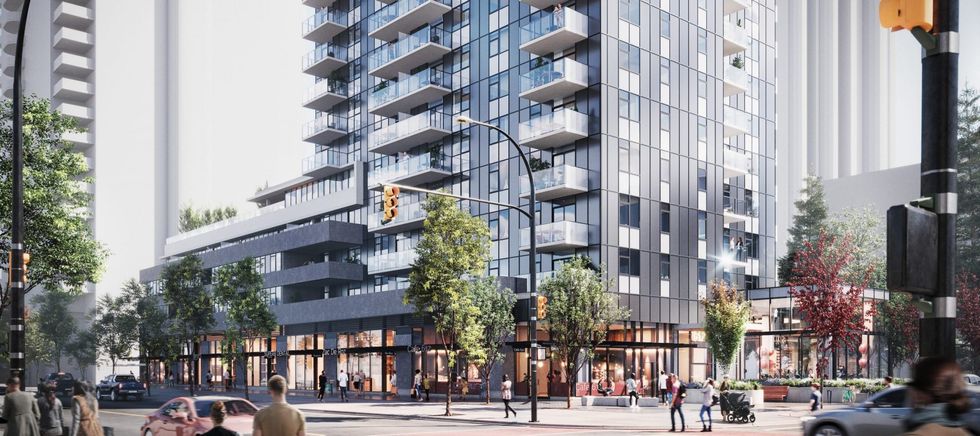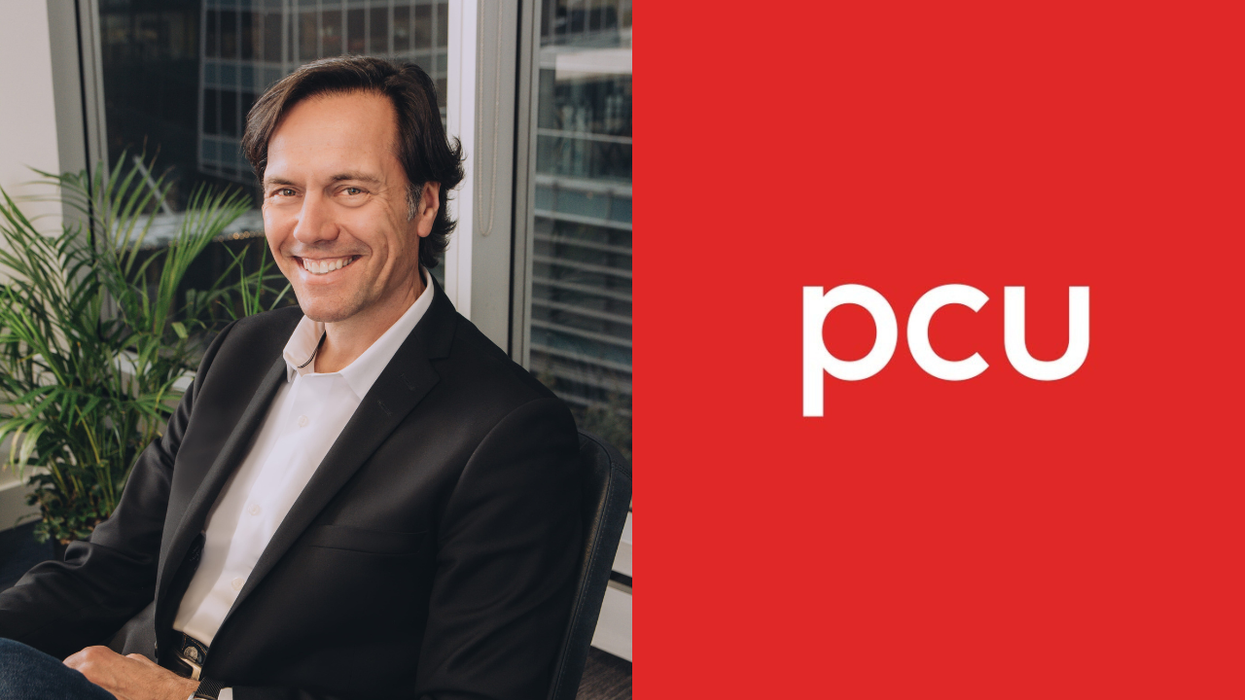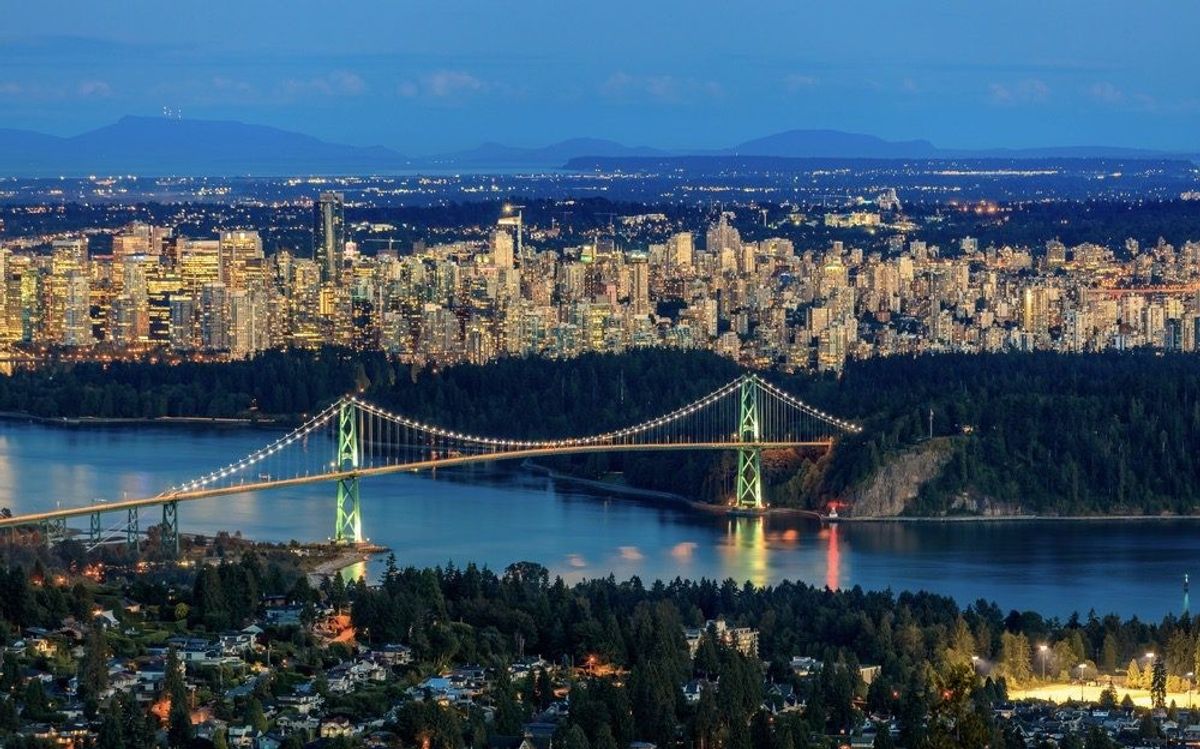Development is a conservative profession by nature, but out of necessity, it’s also getting more creative in its delivery, says long-time developer Brent Sawchyn, founder of Vancouver’s PC Urban, a merchant development company that builds purpose built rental and industrial strata buildings in Western Canada and soon, Toronto.
He’s “of the same vintage” as Westbank founder Ian Gillespie and Anthem’s founder Eric Carlson, having all started out in their 20s learning under a successful shopping mall developer in the early 1990s. Later, when Gillespie and Carlson launched their own companies, Sawchyn worked alongside each of them for several years, before founding his own company. While Gillespie and Carlson became known for residential condo development, Sawchyn carved his own path in industrial and rental, which have proven less volatile in recent years than the uncertain condo market.
“There’s a lot that needs to go into residential condos in the offering, particularly in the context of Vancouver, because there are so many people that are just so good at it,” he says, mentioning Westbank, Anthem, Onni, Wesgroup, and Polygon. “Each project, it seems, gets better design, better amenities, better marketing. And it's pretty exciting to watch, like some of the creative marketing material makes you almost want to salivate over. It looks so good. People often talk about the risk that Ian takes. I think, really, what the risk is, he just thinks outside of the box.
“So, we're going to leave it to those people to do condos.”

Sawchyn found his niche. Since launching PC Urban in 2010, he has built out 15 business parks under the IntraUrban brand, with four more under construction; and he has 1,100 rental homes underway, and another 750 rental units in the application stage that he hopes will get delivered within four years. Residential rental represents half of PC Urban’s business and industrial strata condo units – which offer small to midsize business the opportunity to buy instead of lease – are the other half.
“There's a bit of a yin and yang between the two of them. They're two very completely different business streams and development roles… Both of them have been pretty rewarding, and we like both, and both of them do well.”
Sawchyn grew up in Winnipeg, the son of an impresario who managed 1970s band Lighthouse, and the Royal Winnipeg Ballet, circuses from Moscow and China, and theatrical troupes. When his dad launched a precursor to Cirque du Soleil in the 1980s and interest rates soared to around 20%, Sawchyn saw the risks of running a small business. He became a commercial broker and when he got the call from Rod Schroeder to join his Vancouver-based shopping mall development company, he jumped at it.
“I remember when Ian left to start Westbank and Rod walked into my office and looked at me and said, ‘do you want to be a developer? And I went, ‘sure, not knowing quite what that meant.’”
At the time Sawchyn was so green he says he couldn’t tell an easement from a covenant, but under Schroeder’s tutelage he was given free rein, as long as he didn’t make big mistakes. He soon joined Gillespie at Westbank and during his six or seven years there, he learned what happened when the market turns on you.
“Ian and I were involved in a project down in Washington state at the same time called Lincoln Plaza, which is in Bellevue, Washington. And we got a little too far out, but we were able to sell our interest to a pension fund out of Australia.
“After you’ve been through situations like that, you have a better idea on how to mitigate your risk and a better sense of where you can get caught out. And what's the adage? You learn a lot more from mistakes than you do from success.”
In those days, the capital required wasn’t so big, and they didn’t need the partnerships with big institutional investors that are standard today. Without seed money, they had to get creative, recalls Sawchyn.
“The first couple of projects we did at Westbank were on what were called ‘forward sale.’ So, we were able to kind of, with very, very limited financial resources, put pieces of property under contract with a long enough period of time to be able to figure it out in those days. We were building shopping centres. So, we would be able to secure tenancies, figure out how much it was going to cost with a contractor, get the approvals in place, and then we were able to find a partner who wanted to own it at the end. And the person that was going to own it at the end would actually put up all the equity, if you follow me, and all the capital for the project.
“And we were successful, and that would have been not unheard of back in the early 90s and through the mid 90s. So, we were able to do that pretty successfully, as a start. And then once you started building, you know, they were profitable shopping centres. And then we had some money that we could run with to get involved in more projects.”
Of course, the development world has grown more sophisticated and complex, he says. Everyone, including consumers, knows the price of everything these days, and demands have changed. The capital required is massive, as are the hurdles to get through the process, from acquiring the land to completion. Finding investor partners takes up considerable time and requires networking. PC Urban has partnered with investors that include Nicola Wealth, AIMCo Fund Management, KingSett Capital, and Fiera Capital. In a flattened market like the current one, the less connected developer will have a tough time finding those family offices, pension funds and other institutional investors, who are key.
“Real estate's got a voracious appetite for capital and the projects are by nature getting bigger. Certainly, as we've applied our trades since we started PC Urban in 2010, our projects have gotten a lot bigger, which is great... as a consequence, there’s an amount of capital required and equity to support it.
“I think the very well-heeled capital sources are now very selective. Another friend of mine in real estate said it's hard to get capital for a developer unless you've done that widget five times successfully. It's very hard for someone in this environment to take a chance on someone that really doesn't have a lot of experience.
“I spend a lot of time building relationships. We joke a little bit here internally, but I know it's true, like finding a real estate project, underwriting it, and understanding whether the project itself, economically will work. It takes maybe two or three days to be able to go through the metrics and there’s some conceptualization of the design, but building a relationship to participate in, that project can take two to three months.”
The biggest obstacle he cites is the timeline for approvals, which has grown significantly over the decades since he began. There are layers of bureaucracy, building codes, and politically motivated policy changes that all developers must now contend with. He’s grateful for the federal government’s GST rebate on new purpose-built rental buildings, but a year has gone by since the announcement and they’re still at the application stage. Change is slow.
“Canada is almost the land of suppressed opportunity, right? Like a great place to be, everything going for it, the resources – but again, a myriad of policy that keeps changing all the time.”
And regionally, Metro Vancouver has greatly increased development cost charges to cover new infrastructure needed due to growth in the next three decades. The charges on a Vancouver purpose-built rental unit, for example, have gone from $6,249 to $20,906 by 2027. That extra cost rankles the development community.
“Part of the blame for the cost of housing is often put at the doorstep of the development community. What about cases like Metro Van, where they're trying to recover from their $3.5 billion mistake on the North Shore?” he says, referring to the disastrous North Shore Wastewater Treatment Plant, a major infrastructure project that’s seen costs balloon.
“Maybe there's a better mechanism where the federal government could help the municipalities with those development cost charges for infrastructure, so it doesn't become a burden, because at the end of the day it's the tenant or the homeowner that has to pay for all those costs.”
As for policies, there are “something like 225 policies that exist in the city of Vancouver that affect development,” with about 70 people involved in every step of the approvals process, he says.
“We wonder why housing is so expensive. Everyone wants their pound of flesh at every stage.”
On the upside, there’s that push to be more creative, the new technologies and emphasis on better design that have emerged over the years, part of a shift toward livability.
“Everyone's more inspired to explore the creative aspect of what we do in development. And I don't think it's just developments, it’s everything. It's a lot different than when I was growing up 40 years ago in Winnipeg.”





















